Our view at Stack - Typeform is our go-to software if we need to ask a set of structured questions of a group of customers, prospects or leads. In summary, Typeform combines aesthetics, functionality, and flexibility. User-friendly form builder with interactive design, versatile question types, real-time data collection, 500+ integrations, and diverse templates. Ideal for engaging surveys and lead generation.
They drive real impact for hundreds of businesses. These brands leverage personality quizzes to build connections with their audience and boost lead generation, website traffic, and more.
Keep reading to see how you can design your own personality quizzes, the benefits of interactive content, and how to incorporate them into your marketing strategy.
What are personality quizzes?
If you think of Myers Briggs when you hear “personality quizzes,” you’re not wrong. While they certainly have a place (even in marketing), the personality quizzes we’re talking about are the ones brands use to collect data, personalize everything from communication to product recommendations, and generate leads.
Latest posts on Tips
Take Beardbrand for example. Beardbrand’s personality quiz helps you discover what type of beardsmen you are by asking questions about your ideal beard, current hairstyle, how often you use products, and more.
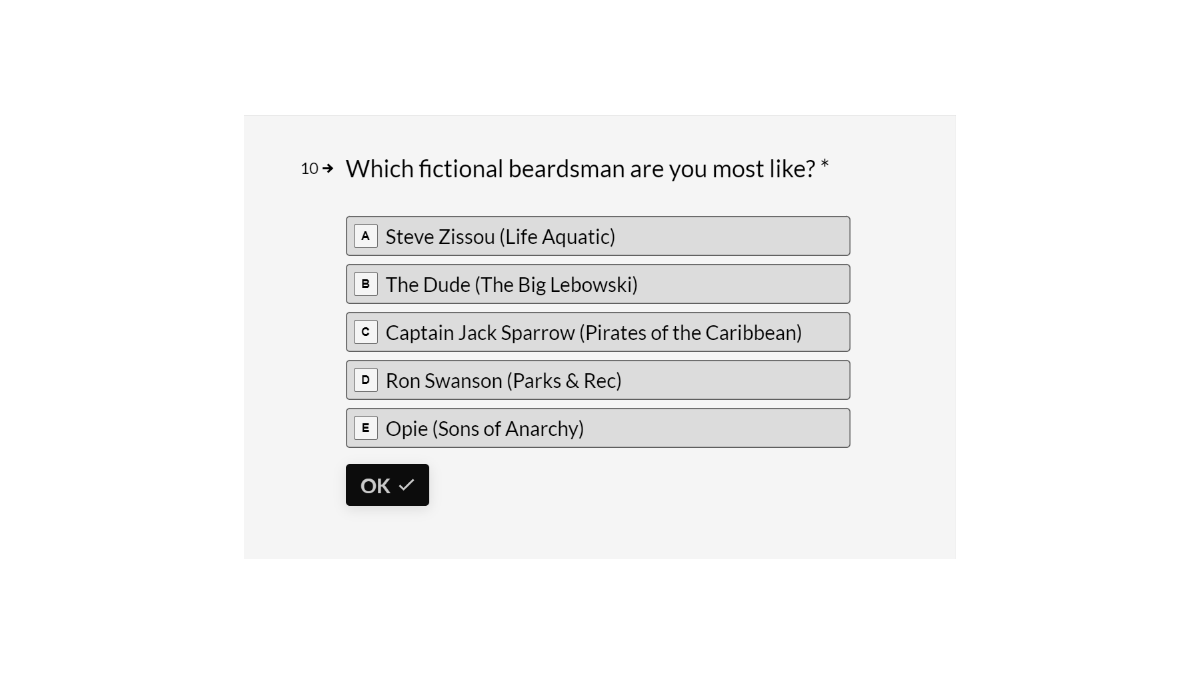
Here are a few reasons brands love interactive content. It:
5 benefits of personality quizzes
Marketers have realized the power of interactive content—like personality quizzes—in engaging with their audiences and creating a pipeline of leads. And they’re seeing the benefits, from increased engagement to lead generation to sales. Take a look at a few of the benefits of personality quizzes.
1. Increase audience engagement
Quizzes aren’t only fun to take, but they also encourage quiz takers to share their results, especially on social media. As your interactive content gets shared by your audience on social, you expand your organic reach, driving more traffic to your site.
Personality quizzes drive engagement by keeping visitors on your page longer, encouraging people to share their results, and building brand awareness as more people find your quizzes organically through friends or social media.
2. Get more zero-party data (ZPD)
Interactive content yields zero-party data by encouraging quiz takers to share data in a non-intrusive way. It works because we all love learning about ourselves, especially when a quick and entertaining quiz is involved.
Personality quizzes get leads and customers excited to share ZPD (the best type of data) with you. That data reveals a more complete view of your audience while providing unique insights for marketing.
3. Personalize the customer experience (CX)
Personality quizzes help you personalize the customer experience through the data they provide. While interactive content is fun and engaging for your audience, it’s also an opportunity to create a better CX that converts leads into customers.
Seriously—the data backs it up. A McKinsey survey highlights the power of personalization. It can:
-
Reduce customer acquisition costs (CAC) by up to 50%
-
Increase revenue by up to 15%
-
Boost marketing ROI by up to 30%
The data you get from the quiz helps you segment your audience so you can create more relevant content and tailor the customer journey.
Look at the Airbnb personality quiz example—it helps match you with your ideal trip. Let’s say my results show I’m an adventure traveler but you’re a luxury traveler. Airbnb could segment us so we both get content we value and trip recommendations that actually match our interests. More relevant marketing for us both!
4. Supercharge lead generation
Personality quizzes play on our innate curiosity and desire to learn more about ourselves. When they pop up on our screens, we can’t resist the urge to find out what type of traveler we are or which supervillain we’re most like… making personality quizzes a gold mine for lead generation.
They make great lead magnets because quiz takers want to see the results of the quiz, so they willingly share their email addresses to get them. Some brands share a sneak peek at the results before asking for an email address for a more in-depth results report.
5. Boost sales with product recommendations
While product recommendation quizzes and personality quizzes serve different purposes, they can both work to generate more revenue for your brand. Product recommendation quizzes are a more direct approach to driving sales—personality quizzes reveal the data and insights that help make more accurate recommendations.
Say a makeup retailer uses interactive content to reveal your night-out style. You find out that you’re a “Disco Diva.” This personality type is dramatic, unafraid to be bold, and always makes a statement.
As a brand, you now have the data to recommend products that are bold and daring, like a glittery eyeshadow palette or vibrant blush.
Pro tip: Ask questions that would logically contribute to product recommendations—whether you like pizza probably doesn’t have anything to do with what running shoe you buy.
Typeform-approved tips on how to create a personality quiz
Before you reap all the benefits of a carefully crafted personality quiz, you need to create it. We’ve got a few best practices for personality quizzes that’ll help you design engaging and fun quizzes (and support your marketing efforts and growth).
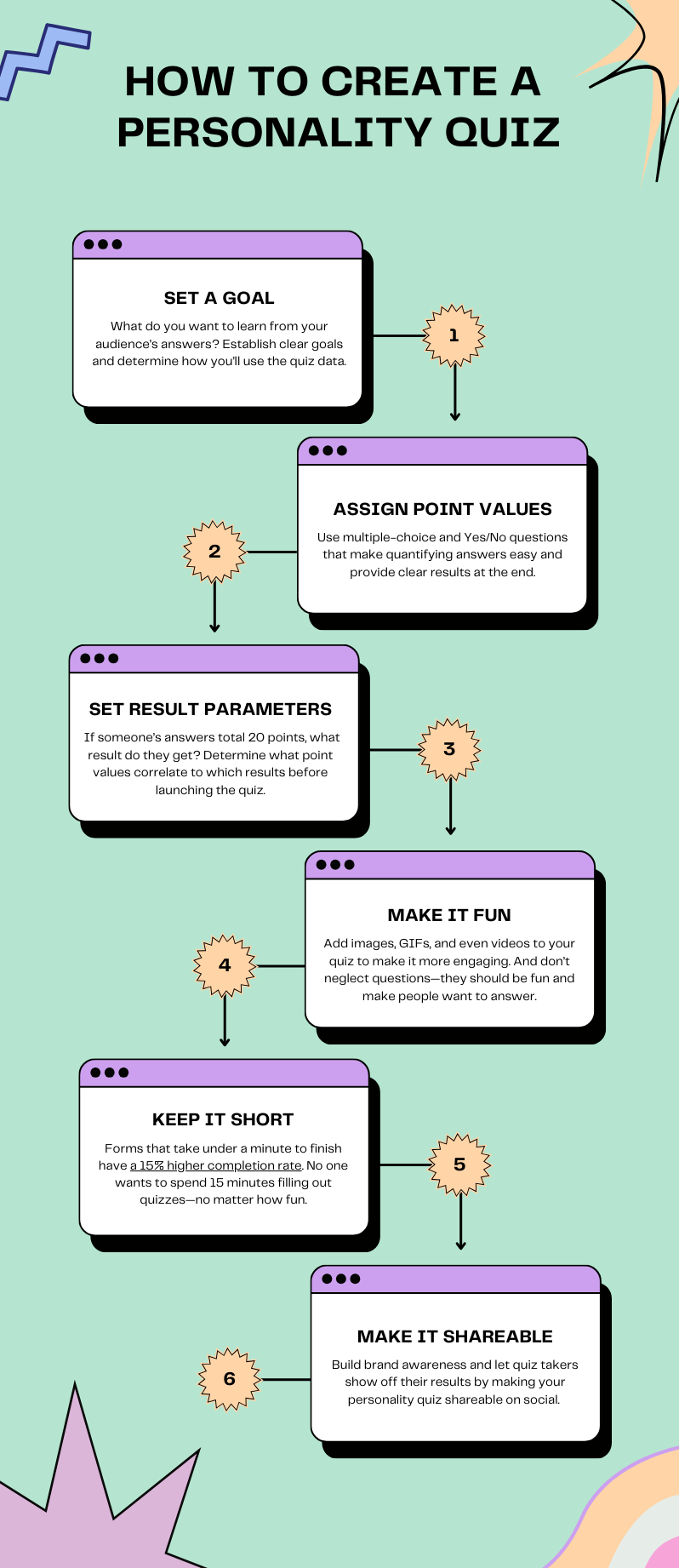
And it goes without saying—keep your customers’ data safe. People who willingly share their data with you expect that you have systems to protect their data and use it ethically.
Personality quizzes, meet marketing strategy
Interactive content, specifically personality quizzes, is an often undervalued marketing tool. Sure, the quizzes are fun. But (as we already discussed) they can also help you create a more effective marketing strategy by collecting valuable customer data that helps you:
-
More accurately segment your audience
-
Personalize the customer experience
-
Tailor content and resources
-
Increase sales
Take a look at these personality quizzes—they’re entertaining and have clear marketing goals attached to them.
Yonder
Explorer credit card company Yonder uses its personality quiz to reveal the type of points-obsessed personality the quiz taker is. With no email required to see your results and big social share buttons at the end, this quiz is about building brand awareness and engagement with their audience.
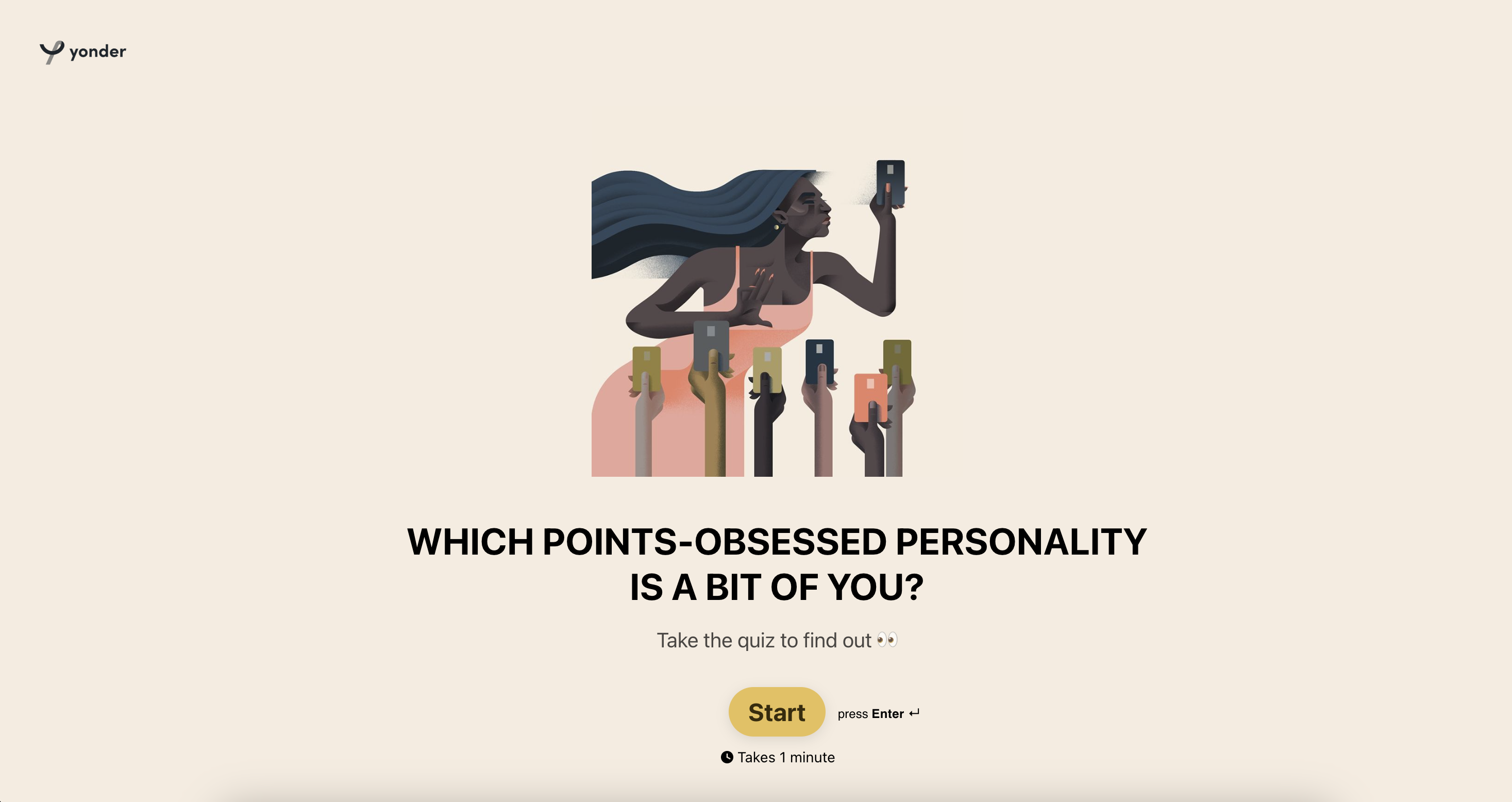
Zapier
With a title like, “Which type of workplace frenemy are you?” Zapier has already captured our attention and piqued our curiosity. It’s obviously a fun personality quiz, but the real goal here… collecting customer data and lead generation.
Every question is tied to a unique Zapier capability (in a fun way), giving Zapier useful insight about how their customers might be using the platform or would use it. And the quiz ends by asking for your consent to receive emails from them (lead gen).
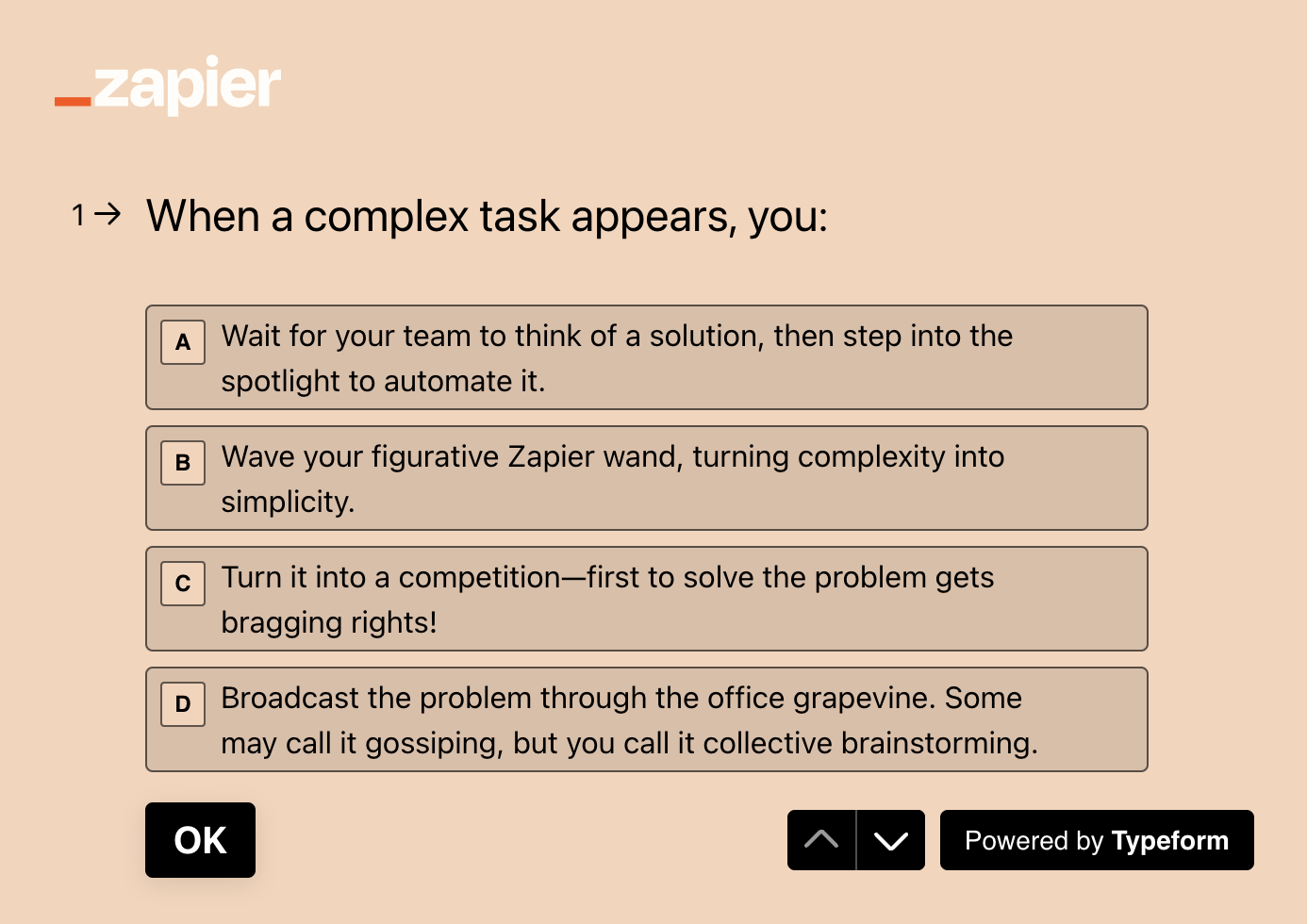
CurlMix
Okay, CurlMix’s hair curl type quiz is more about your hair’s personality type, but it’s a good one nonetheless. Their personality quiz gets specific about your hair type, allowing them to segment you based on your results, send tailored communications, and personalize product recommendations.
The quiz also acts as a lead magnet by asking for your email before it shares your results (and a product suggestion). While you might not buy a product today, now that they have your information, they can use that data to nurture you with personalized content and recommendations that’ll drive an eventual sale (or sales).
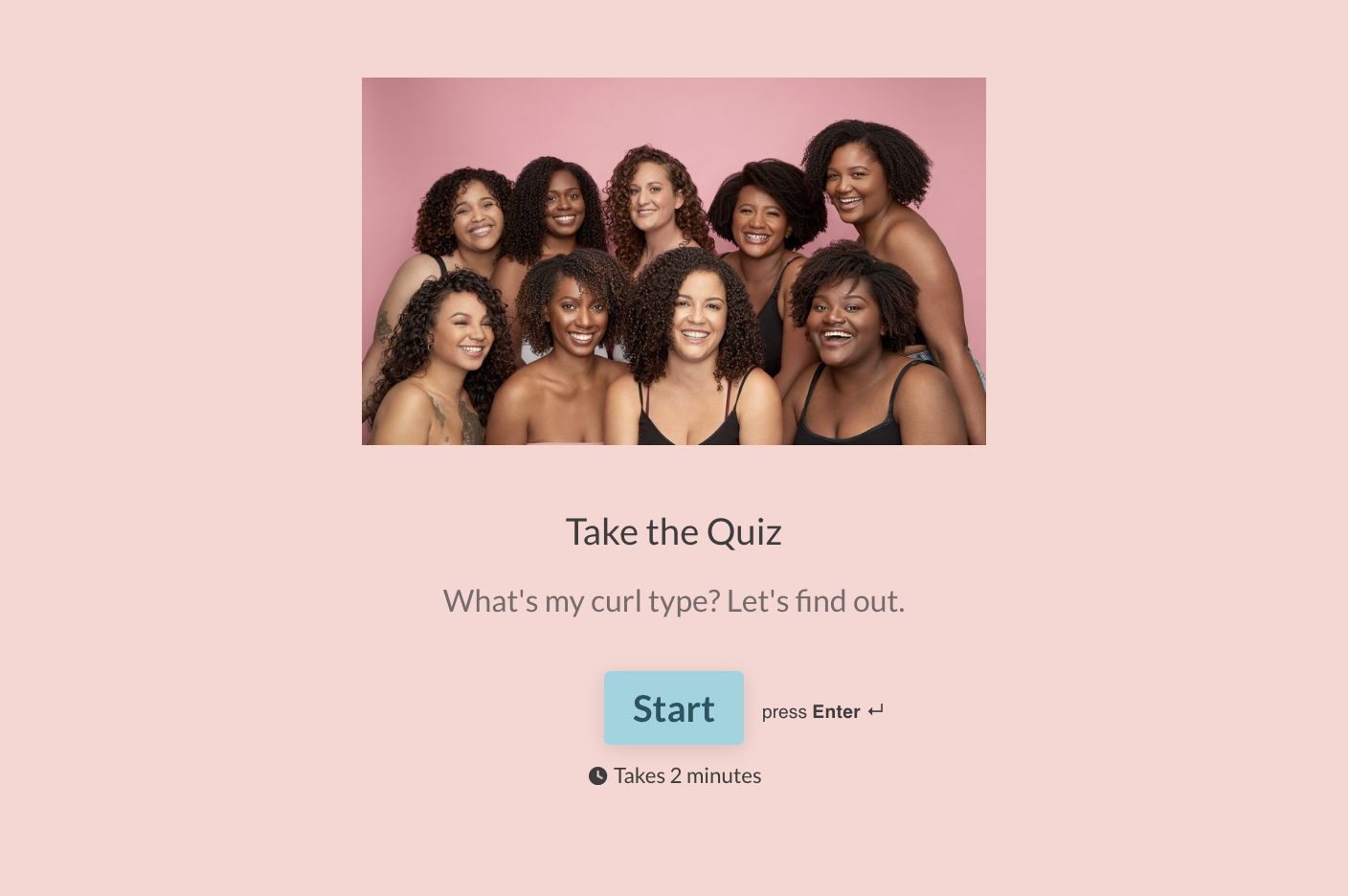
Create your own
Now that you’ve seen a few personality quizzes done right and see the value they bring to any marketing strategy, it’s time to create your own. And remember, it’s a personality quiz—it should be fun, creative, and a reflection of your brand.
If Typeform is of interest and you'd like more information, please do make contact or take a look in more detail here.
Credit: Original article published here.
